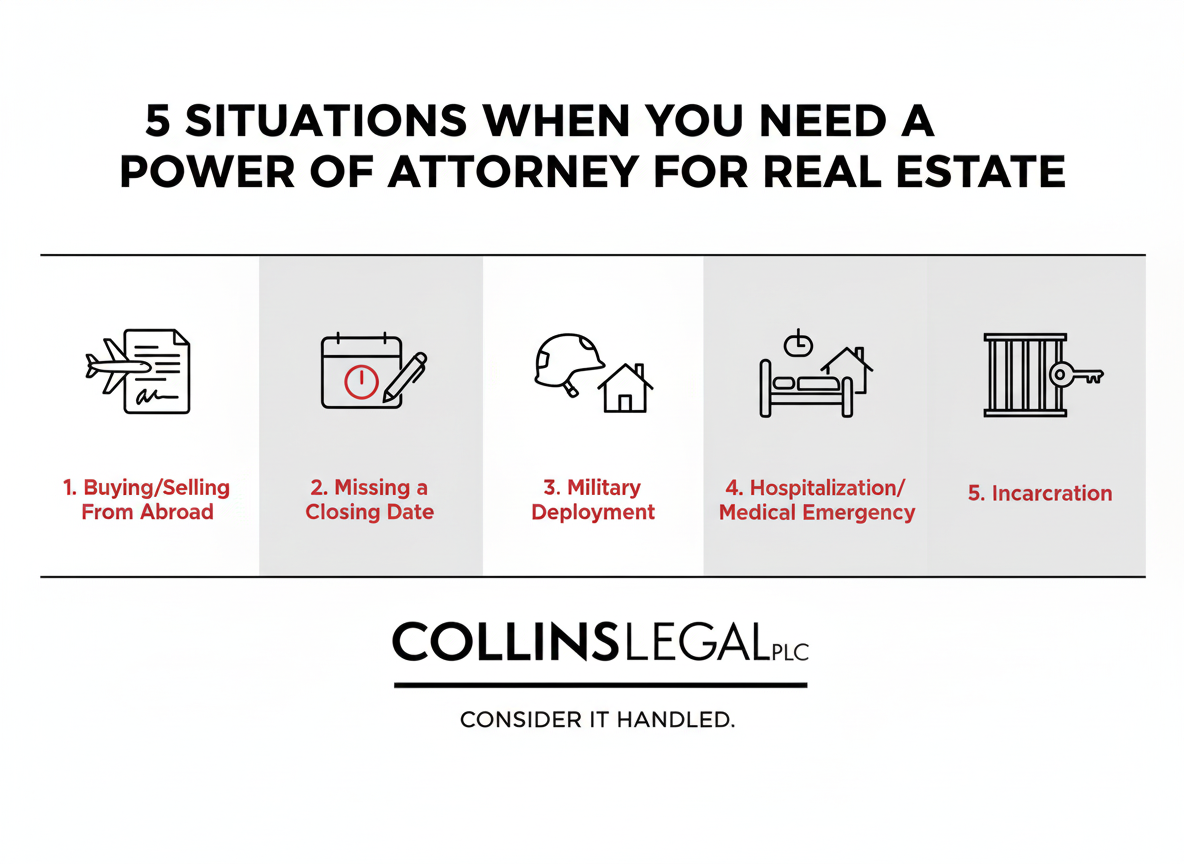Contents
- Buy or sell property from abroad
- Miss a closing due to absence
- Deploy for military service
- Face hospitalization or nursing home care
- Experience incarceration
Buying or Selling Property from Abroad
When you buy or sell property from outside the country, you can appoint a trusted representative with a power of attorney for real estate. This person will sign documents, access information, and make decisions for you. First, draft a POA that your home country and the property’s jurisdiction recognize. Clearly state your agent’s authority, and make sure you notarize and register the document. As a result, you streamline the process and protect your interests, even when you can’t be there.
Not Being Physically Present for Closing
Sometimes work, travel, or health keeps you from attending closing. In these cases, you can empower a family member, friend, attorney, or agent to sign and finalize the sale or purchase. Specify the transaction in the POA, notarize it, and follow state laws. Because you chose someone you trust and completed the paperwork, your deal moves forward smoothly.
Military Deployment
If you serve in the military and deploy, you can use a POA to manage real estate deals from afar. Before you leave, execute a POA that details your agent’s powers—signing, filing, handling payments, and gathering information. Select someone reliable and easy to reach. While you’re away, your agent keeps the process on track. When you return, renew or update the POA as needed.
Hospitalization or Nursing Home Stay
If you face hospitalization or move to a nursing home, you can assign a POA to handle real estate matters. Your agent will sign papers, negotiate deals, and manage payments for you. Prepare the POA in advance, outline your agent’s powers, and meet all legal requirements (witnesses, notarization). This way, you stay in control and ensure your affairs run smoothly.
Incarceration
If you experience incarceration, a POA often serves as your only way to complete real estate transactions. You’ll need a court-approved POA, proper documentation, and a qualified agent. The process can get complicated, so consult a real estate attorney for guidance. Renew your POA on time to keep your interests protected.
Conclusion
A power of attorney lets you stay in control—no matter where life takes you. Whether you’re abroad, absent, deployed, hospitalized, or incarcerated, you can protect your interests and keep your real estate deals on track. Collins Legal stands ready to help you draft, execute, and manage POAs for any scenario, so you can move forward with confidence!
Contact a Nashville Real Estate Attorney today!
Read More:
→ BLOG: What Real Estate Agents can’t talk about!
→ BLOG: Contingency: What does it mean in Real Estate?

